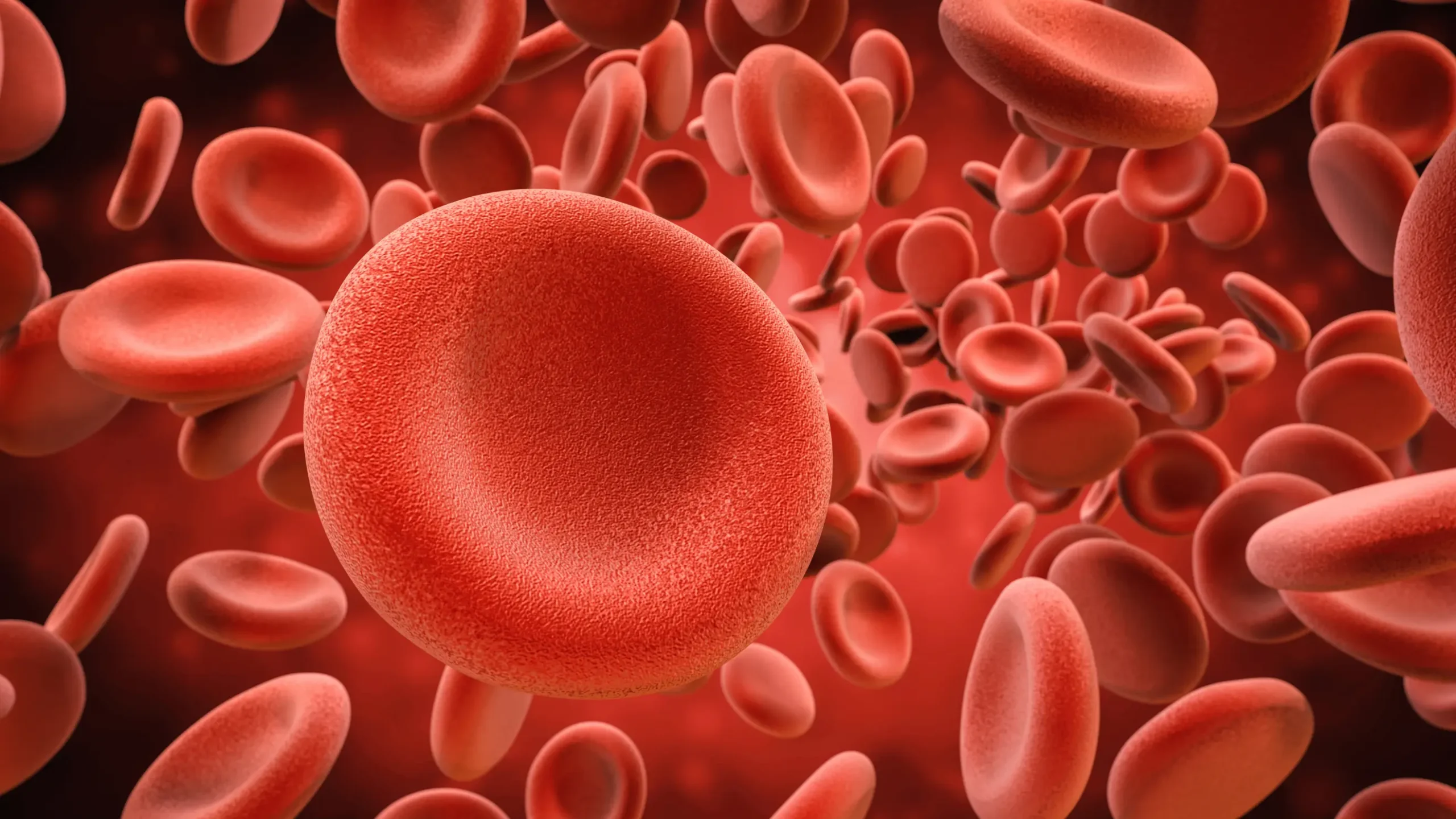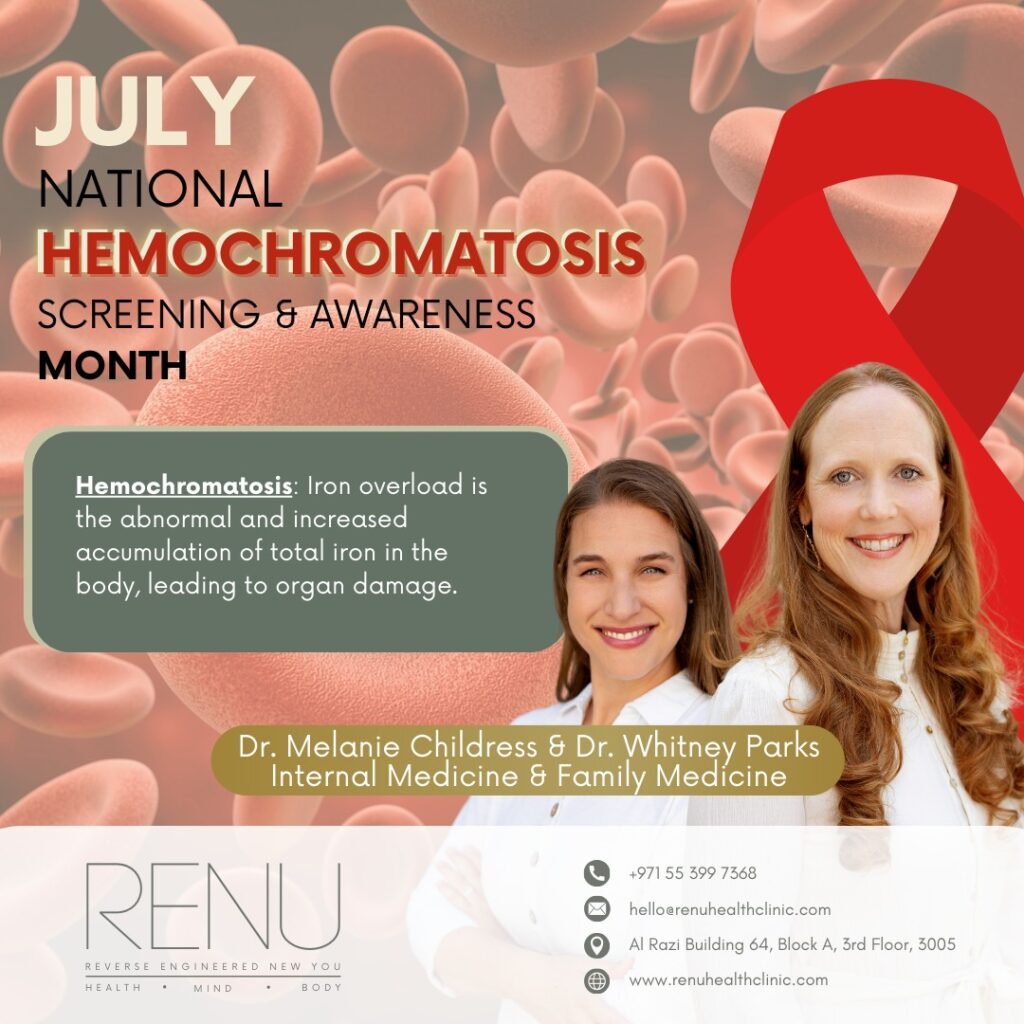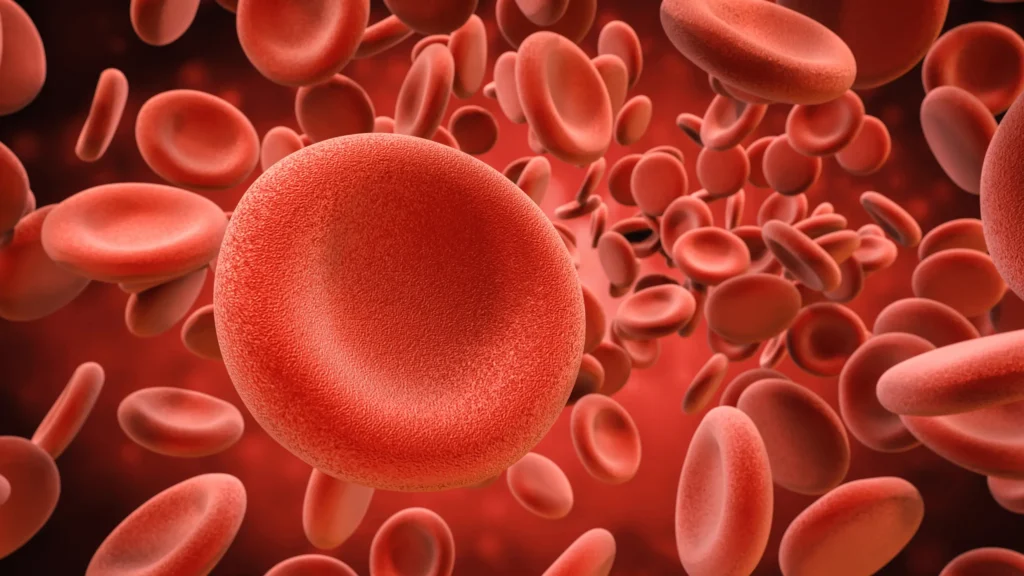National Hemochromatosis Awareness Month is the perfect time to shine a spotlight on this often overlooked genetic condition. Hemochromatosis causes the body to absorb and store too much iron, which can lead to serious organ damage if left undetected and untreated.
Prevention and Early Detection
Hemochromatosis is an inherited disorder, so individuals with a family history are at higher risk. Genetic testing can identify those with the gene mutations associated with the condition, even before any symptoms appear. “Regular blood tests to monitor iron profiles are crucial, especially for high-risk individuals,” says Dr. Melanie Childress, consultant Internal Medicine physician at RENU Health. “Catching hemochromatosis early is key to preventing the harmful effects of iron overload.”
Symptoms and Complications
In the early stages, many people with hemochromatosis experience no symptoms at all. However, as excess iron continues to accumulate, a range of health issues can arise. Common symptoms include joint pain, fatigue, abdominal pain, and irregular heartbeats. Untreated, the excess iron can ultimately lead to severe organ damage, including liver disease, heart problems, and diabetes.
Treatment and Management
The primary treatment for hemochromatosis is phlebotomy, a procedure similar to blood donation where excess iron is removed from the body. Medications and dietary changes may also be recommended. By carefully managing iron levels, individuals with hemochromatosis can often avoid the serious complications associated with the condition.
Testing for Hemochromatosis
This National Hemochromatosis Awareness Month, take the time to learn more about this genetic disorder. Talk to your primary care provider at RENU about getting tested, especially if you have a family history. With vigilance and proactive care, hemochromatosis can be prevented and treated effectively.
Contact our Patient Concierge to make an appointment with your primary care provider, today!



